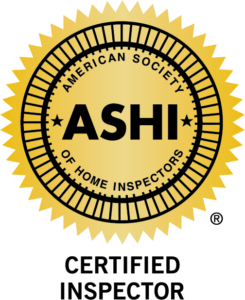Inspection Q&A
A single family dwelling inspection takes about 2-3 hours depending on the conditions found, how many questions are asked, and the size and nature of the property. A historic house (e.g., 1850's) takes longer than a newer home in good condition. We generally plan on 2-3 hours for an average home. If the house is unusually large or is known to have major issues, we can schedule more time if we know in advance. The addition of other related services such as sewer line inspections, mold sampling etc. may affect the duration of the inspection. Most of our clients request the Home Inspection, Radon Testing, WDI Inspection, Sewer Line Inspection and an Oil Tank Search. These services are generally conducted within the stated time line.
Attendance at the inspection is strongly recommend but not required. We describe how a home's systems work, what our concerns are, and offer information concerning maintenance and corrective action. In effect, our inspections are a "Homeowner 101" presentation about your house. Many of the items discussed do not merit inclusion in the report, but our clients tell us that the information is very useful. If you do not plan to attend the inspection, please advise us of this limitation so we can plan accordingly.
You will be advised of the findings before you leave the inspection. The written Inspection, WDI, and Sewer reports take a day or two to prepare. We e-mail the report to you, your Realtor, and your Attorney if approved to do so. Radon testing takes longer, generally about a week from the time the inspection starts until the results are available.
Yes. We offer radon testing as a service to our clients. Radon is a naturally-occuring, odorless, colorless radioactive gas. Considered an indoor pollutant, radon is emitted by hard, rocky soils found in many areas of New Jersey. Like any radioactive substance, exposure at sufficient doses can lead to health issues. High levels of radon in a home can usually be effectively reduced by a qualified expert. We are licensed by the NJ DEP to conduct radon testing.
We use charcoal canisters. Other technologies are available but the charcoal canister is convenient, highly sensitive, reliable and accurate. Continuous radon monitors are another technology in the market place. The canisters we use are much more sensitive than the most sensitive monitors commonly available.
Yes, but some comments apply. We generally advise scheduling the inspection after attorney review is complete.
During attorney review, you can walk away from the contract without giving a reason, particularly if something nasty turns up during the inspection. However, the seller can also break the contract without giving a reason. You will have paid for your inspection, and will lose the money if the seller breaks the contract before attorney review is completed.
Some sellers will not permit an inspection until the attorney review is complete, as breaking the contract is harder once attorney review is complete.
You may wish to schedule an inspection in anticipation of completion of attorney review. We can adjust the schedule if attorney review takes longer than expected.
Yes. Brian is licensed by the NJ DEP as a Commercial Pesticide Applicator, License #: 59911B. We perform all of our own WDI (termite) inspections.
First, understand that this is not a legal opinion. Talk to your attorney. A contract is usually considered to be complete when your attorney has completed a review of the contact and signs off on it. But some cautions are in order.
If you are using a Realtor, he/she prepares an initial draft to make the offer, and when it is signed by buyer and seller, it creates an "offer and acceptance" which is then given to the Attorneys for their review. You have three days to seek an attorney, or you forfeit the right to an attorney review. The clock starts when both parties receive completed paperwork, properly signed. Attorneys can extend the initial three-day review period, and frequently do. Attorney review takes as long as it takes.
If you are not using a Realtor, your Attorney prepares the contract, and it becomes official when both Attorneys (buyer's and seller's) sign off on the contract. You in effect skip the "offer and acceptance" stage.
The use of an attorney is customary in the northern half of the state but not as common in the southern half of the state. The use of an attorney is not required but often customary in our service area.

